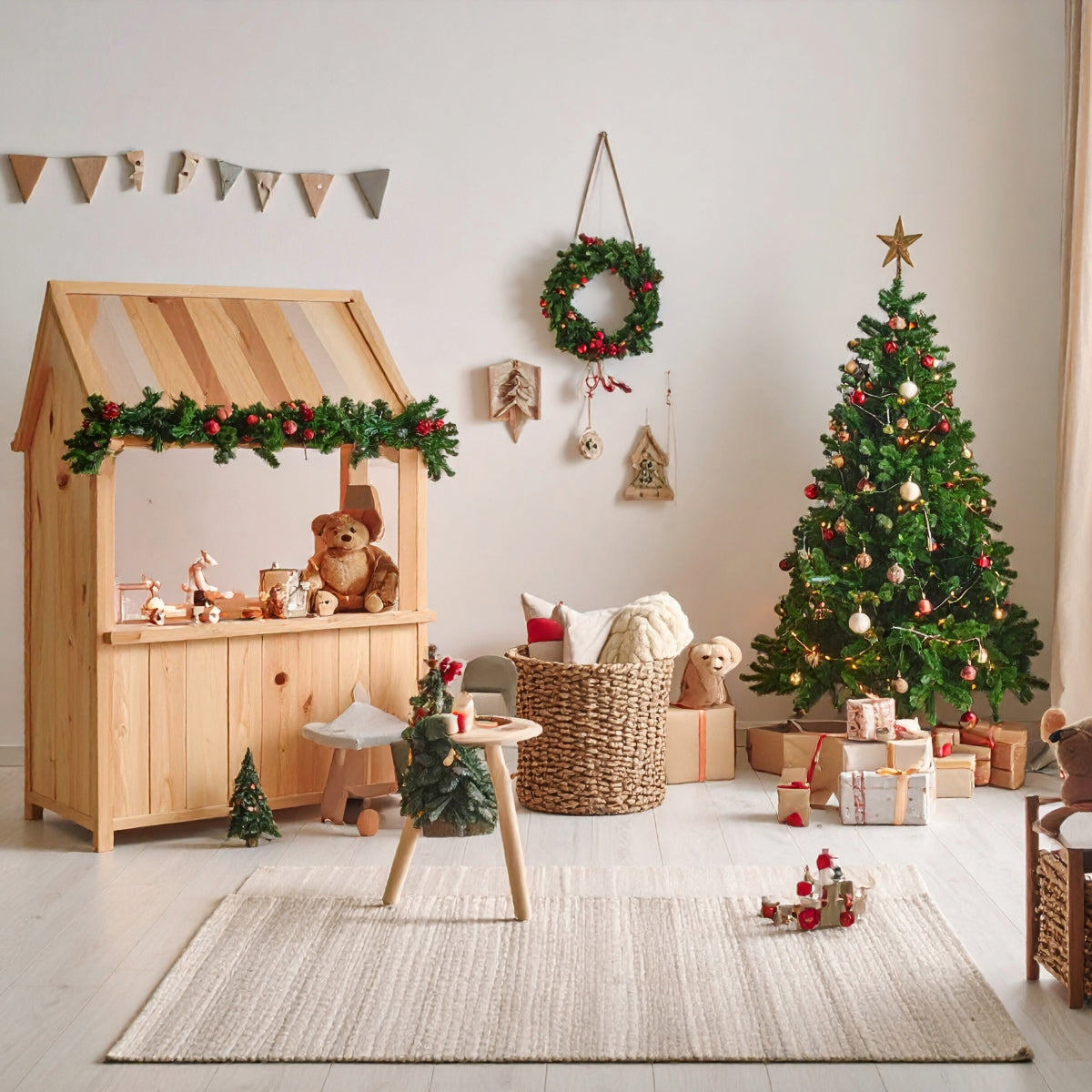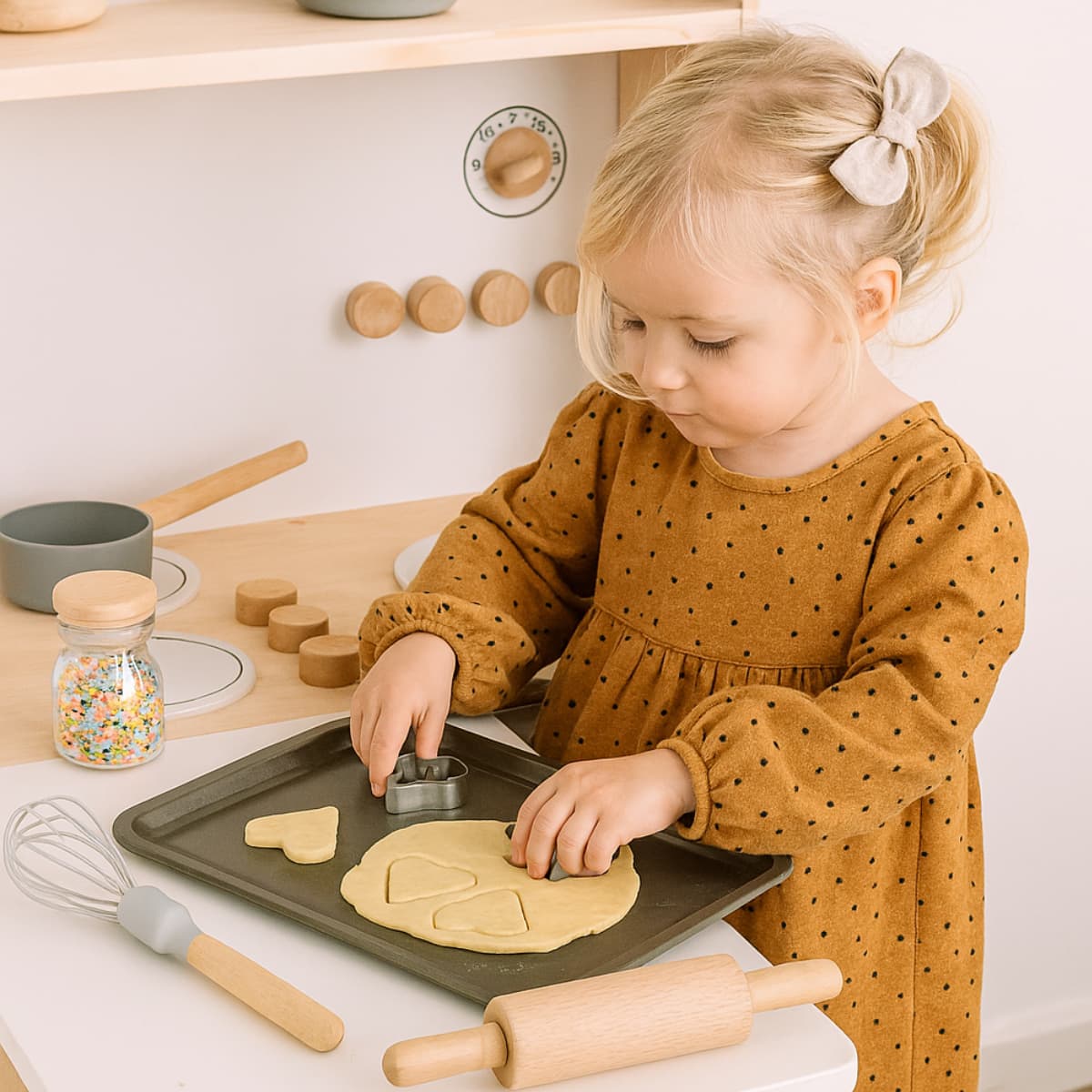FAQ – Play Shop
Are you looking for information about our wooden play shops and matching accessories? Here you’ll find a compact overview of frequently asked questions – ideal for parents, grandparents, and anyone seeking sustainable toys for the children’s room.
Our FAQ offers: Guidance on age recommendations, safety, and material quality Tips on choosing accessories and designing play setups Insights into the educational value of role play
Frequently Asked Questions
A play shop is generally suitable from age 3. It’s important to ensure that small parts are child-safe.
A cash register with play money, a scale, shelves, and toy groceries – perfect for starting imaginative shopping play.
Usually as a kit with detailed instructions – securely packaged and easy to assemble.
Simply wipe with a slightly damp cloth. Please avoid using harsh cleaning agents.
There are various designs of play shops for children. Classic models with front and side counters offer plenty of space for selling and displaying. Versions with awnings or roofs resemble market stalls and create a particularly cozy play atmosphere. Flexible elements can be arranged side by side or face to face – ideal for creative room layouts and shared play with multiple children.
That depends on the location and personal style. A colorful play shop brings life into the children’s room and stimulates imagination. However, it can quickly appear busy when paired with vibrant accessories. A plain model in natural or pastel tones creates a calm play environment and blends harmoniously into living spaces. Fewer colors help focus attention on the play itself – especially when lots of accessories are in use.
Sizes vary widely. Compact models are ideal for smaller spaces, while larger shop stands offer more play opportunities. Pay attention to the counter height (usually around 50–60 cm).
No – with a little imagination, the play shop becomes a doll’s doctor’s office, hair salon, café, or even a post office. The open design and versatile elements offer countless possibilities for creative role play – far beyond shopping.
Playing with a play shop supports language development, early math skills, social interaction, and creative thinking in a playful way. Children take on different roles, practice handling money, and rehearse everyday situations through imitation – all while having fun.



